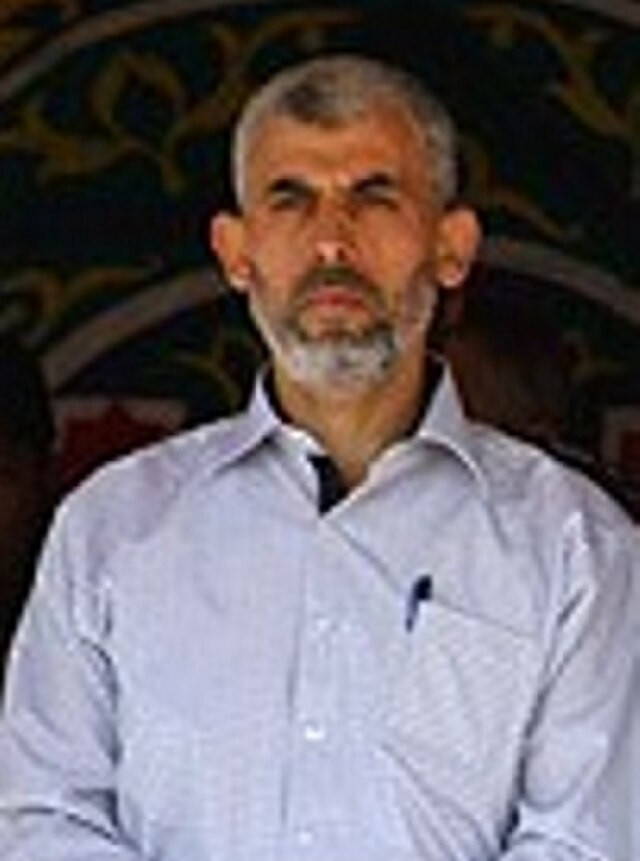Israel confirmed the killing of Yahya Sinwar, the leader of Hamas and the architect behind the October 7, 2023, attacks that marked a deadly escalation in the Israeli-Palestinian conflict. Sinwar, a key figure within Hamas, had been a high-priority target for the Israel Defense Forces (IDF) for over a year. His death in an Israeli military operation on October 16, 2024, could shift the dynamics of the conflict, though uncertainty remains over its long-term impact.
The IDF, in collaboration with the Israeli Security Agency (Shin Bet), announced the successful elimination of Sinwar after what officials described as a year-long manhunt. Israeli Prime Minister Benjamin Netanyahu expressed satisfaction with the operation, stating, "We have settled our account with Sinwar." Netanyahu emphasized the importance of Sinwar's death, calling him responsible for "the worst massacre in the history of our people since the Holocaust."
The killing of Sinwar occurred during an IDF patrol in the southern Gaza Strip. Initially, the soldiers encountered and engaged three armed militants, ultimately identifying one of the bodies as Sinwar through DNA testing. Israeli Foreign Minister Israel Katz and Defense Minister Yoav Gallant confirmed the news to their international counterparts, including U.S. Secretary of Defense Lloyd Austin. "Sinwar's death sends a clear message to our enemies: the IDF will reach anyone who threatens the safety of our citizens," Gallant said in a statement.
The October 7 attacks, orchestrated by Sinwar, were one of the deadliest assaults on Israel in decades. The attack left 1,200 Israelis dead, many of them civilians, and resulted in the abduction of approximately 250 people, including foreign nationals. Israel has since waged an intensive military campaign against Hamas in Gaza, resulting in over 42,000 Palestinian deaths, according to local health authorities. While Israel has achieved significant military objectives, the conflict has created a humanitarian catastrophe in Gaza, drawing widespread international concern.
Netanyahu has pledged to continue military operations until Hamas is entirely dismantled as both a military and political force. He reaffirmed that Israel's war against Hamas would not end until key goals are met, including the safe return of around 100 hostages still held by Hamas. "The war is not over yet, and great challenges remain ahead of us," Netanyahu said in a televised address, urging Hamas members to release the hostages and lay down their weapons in exchange for safe passage.
Despite Sinwar's death, the larger question remains whether his elimination will lead to a lasting ceasefire or deeper conflict. The Biden administration expressed hope that this could mark a turning point. President Biden acknowledged Sinwar's killing and reiterated that the U.S. would continue to support Israel in its efforts to bring home the remaining hostages. Vice President Kamala Harris remarked that this moment could offer an opportunity to end the war in a way that ensures Israel's security and allows the Palestinian people to realize their right to "dignity, freedom, and self-determination."
However, in Gaza, Hamas and other Palestinian factions have downplayed the significance of losing Sinwar. Historically, Hamas has proven resilient despite the assassination of key leaders by Israel. In February, Hamas spokesperson Basem Naim stated that while losing leaders affects the movement temporarily, it does not stop the overall struggle. "This conflict is between Palestinians and Israel, not just Hamas and Israel," Naim noted, emphasizing that new leaders would emerge to continue the battle.
Sinwar's death follows the earlier assassinations of other high-ranking Hamas figures, including Al-Qassam Brigades commander Mohammed Deif and his deputy Marwan Issa. Sinwar himself had survived previous assassination attempts and was known for his strong stance against Israel, once declaring that martyrdom would be his preferred way to die. His leadership role within Hamas, particularly his coordination of internal security operations, made him a central figure in the group's strategy.
As the war continues, the conflict extends beyond Hamas and Israel. The regional dynamics involving Iran and its Axis of Resistance - which includes Hezbollah, Iraqi militias, and Yemen's Ansar Allah - have increasingly come into play. Iran's involvement in the war has grown, particularly after the killing of Hezbollah leader Hassan Nasrallah by Israeli forces in Beirut last month. The risk of further escalation looms, with Israeli strikes against Hezbollah targets in Lebanon and retaliatory actions by Iranian-backed militias.




